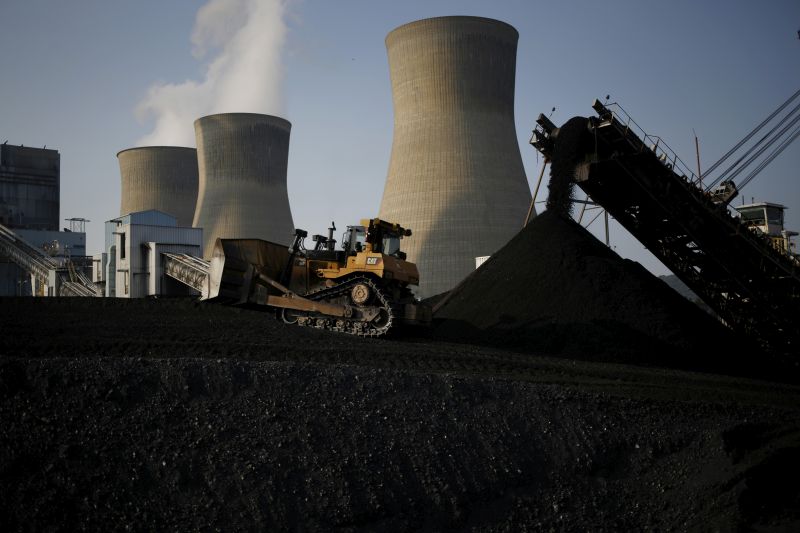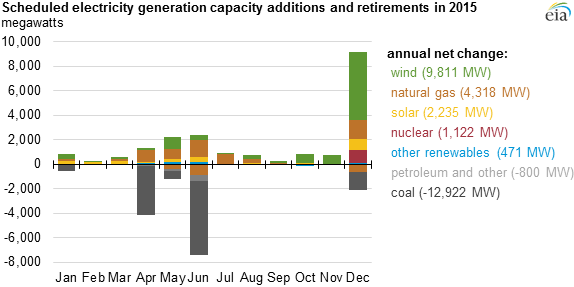
EPA's "War on Coal" is succeeding in driving coal-fired power plants into retirement.
The Energy Information Administration (EIA) reports, "Nearly 16 GW of generating capacity is expected to retire in 2015, 81% of which (12.9 gigawatts) is coal-fired generation." At the same time, new electricity-generating capacity will come mostly from wind (9.8 GW), natural gas (6.3 GW), and solar (2.2 GW).

EPA regulations are the villain, according to EIA:
The large number of coal-fired generator retirements is primarily because of the implementation of the Environmental Protection Agency's Mercury and Air Toxics Standards (MATS) this year, although some units have been granted extensions to operate through April 2016. MATS requires large coal- and oil-fired electric generators to meet stricter emissions standards by incorporating emissions control technologies in existing generating facilities. Some power plant operators have decided that retrofitting units to meet the new standards will be cost-prohibitive and are choosing to retire units instead.
And waiting in the wings are EPA's carbon regulations, which will retire as much as 49 GW of coal-fired power by 2020, according to the agency.
Removing that much base load power will mean a less-reliable power grid, the North American Electricity Reliability Corporation--the independent organization actually responsible for ensuring grid reliability--warns:
The proposed timeline does not provide enough time to develop sufficient resources to ensure continued reliable operation of the electric grid by 2020. To attempt to do so would increase the use of controlled load shedding and potential for wide-scale, uncontrolled outages.
It will also increase electricity costs.
Coal has served America well as part of its energy mix. Using federal regulations to drive it out of use will harm power grid reliability and economic growth.

